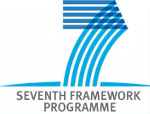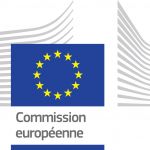CONTEXT AND OBJECTIVE:
The AWARE project, funded by the European Commission (EC) under the Seventh Framework Programme (FP7), has developed and tested a new way of connecting scientists, citizens and policy makers to improve the effectiveness of their participation and cooperation in water science.
The project focuses particularly on coastal areas, both on transitional waters in estuaries that are partly saline due to freshwater rivers flowing into the sea; and coastal waters, located 10km from the coast. The idea is to generate links between existing (multidisciplinary) research and public policies through the concept of “integrated and adaptive ecosystem management” (developed in the USA in the field of natural resource management and natural parks).
The idea is to carry out three participatory scenario building case studies in different coastal regions of Europe. In each of the three pilot sites, each of the groups (researchers, decision-makers and the public) will have to study and analyse scenarios of deterioration of the coastal zones and the different possible measures to contain or slow down this deterioration. The aim is to anticipate problems and propose solutions, based on existing scientific research on the subject.
3 sites were selected:
- The coastal area of the Gulf of Riga, in the eastern Baltic Sea (Estonia and Latvia): this is one of the most polluted basins in the Baltic Sea. The governments concerned have agreed on a plan to restore the ecosystem, but it is now considered too costly compared to the results that can be achieved. The idea is that better interaction between researchers, decision-makers and the public at this site would allow for less expensive services to be set up for the rehabilitation of the Gulf.
- The Seine, Somme and Schelde river basins and the southern North Sea coastal area (France and Belgium): this is one of the most densely populated and industrial areas in Europe. Agriculture is also intensive. Many rivers flow into the North Sea. Water quality is very poor.
- The Po Delta and Goro Lagoon (Italy): the Po is the longest river in Italy and flows through many of the major cities in northern Italy. At its mouth, mussel and shellfish cultivation is predominant (on more than 1/3 of the surface of the Goro Lagoon) but is controlled. The sustainable development of the lagoon depends on the balance that has to be found between oyster farming, the protection of the site and the development of other activities.
The case studies aim at:
- Exchanging the different points of view, problems and constraints identified on each site.
- Producing scenarios for sustainable water use and quality in these coastal areas.
- Better and more extensive use of existing water research results to facilitate the formulation and implementation of sustainable water management policies in these areas.

TERMS OF REFERENCE OF THE MISSION:
As a specialist in facilitating participatory workshops in France and Germany, Missions Publiques’ role in this project was to:
- Prepare a report on this research, particularly in the 3 sites concerned, which will be used to inform the various stakeholders in the panels. This report should have ‘digested’ the identified research elements in a way that makes them understandable to ordinary citizens on the panels.
- identify and contact local stakeholders for the implementation of the pilot projects and for networking, about 15-30 people. It is also about pointing out the local governance and stakeholder games in each study site.
For the implementation of the 3 case studies, Missions Publiques organized several workshops:
- 1st workshop with the 30 citizens + scientists. Information/training on existing research and preparation for their participation in the workshops in each of the study sites. In each of the 3 sites, workshops with the 10 local citizens + other stakeholders. And final local conferences.
- 2nd workshop with the 30 citizens + scientists + decision makers and water stakeholders (15 to 30 people).
- And a final conference in a European institution, presenting the results and recommendations on how to connect research to public decisions and policies on water, with greater public involvement.

PARTNERS:
13 partners, in Italy, France, Norway, Germany, Austria, Sweden and Belgium: ISIS (Italy), ADELPHI (Germany), ICCR (Austria), Institute for environment and sustainability (at European level), Université Pierre et Marie Curie (France), Université libre de Bruxelles – laboratoire d’écologie des systèmes aquatiques (Belgium), University of Siena – department of information engineering (Italy), University of Parma – Department of Environmental Sciences (Italy), Politecnico di Milano Research Centre (Italy), Provincia di Ferrara, Environmental Service (Italy), Bioforsk – the Norwegian institute for agricultural and environmental research (Norway) and Uppsala University (Sweden)




